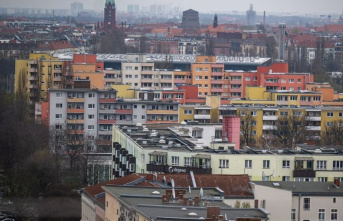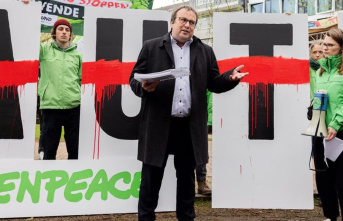In an unprecedented move, the Indian Government cut off last Thursday, all mobile communications, including messages, calls and Internet, in various areas of New Delhi and other cities of the country with the aim of countering the massive street protests against the controversial citizenship law. Although this is the first time that happens in the capital, this measure, commonly used by authoritarian regimes to restrain the access to information in networks, it is not unusual in India. Democracy-most populous on the planet happens to be the country that most Internet outages recorded, with high costs to its economy and services.
According to the advocacy group for Internet Access Now, 67% of the suspensions of the Internet in the world occur in India. Since 2012, the asian country has interrupted 373 times access to the Network, according to data from the Center to the Right and the Freedom of Software (SLFC), which oversees this activity from New Delhi. Although authoritarian regimes with greater restrictions on the use of the Internet, such as China or North Korea, do not stand out in the global list for lack of reliable data and transparency, the amount and continuity of the courts in India overcome with worrying margin of his followers: 19 courts in Pakistan, and 8 in Iraq and Syria, according to Access Now.
Like other countries, the indian authorities justified the initiative as a spring to restore law and order in face of the increasing protests by the end of 2019. So what made last week in seven indian States, in response to marches —sometimes violent— against a law considered discriminatory, as it allows you to grant permissions to irregular immigrants from neighbouring countries provided that they do not profess islam. But this is not the only reason for the cut in supply in India. Since 2012, Kashmir suffers repeated disconnections, and this week broke the record with the power outage longer in a democracy, 137 days. This region —the only muslim-majority in India and disputed with Pakistan— live isolated from four months ago, when the Government withdrew its special autonomy and divided the State into two territories governed by Delhi.
“These actions are inherently undemocratic,” explains Raman Jit Singh Chima, Policy director, Asian Access Now, “the authorities must restore the connections in all of the affected parties, and to take measures to ensure the protection of the freedom of expression, access to information and other rights guaranteed by the Constitution of India”. Because the restriction of the Internet for political reasons has an impact on the activity of democratic india, but it also has a cost to your economy. According to a report by the Indian Council for Research on International Economic Relations (ICRIER), the 16.315 hours of disconnection between 2012 and 2017 generated losses worth of 3,040 million dollars.
restrictions on The use of the Internet to crawl consequential limitations of resources in economies increasingly digitized, as was the case in the systems of health and education in Kashmir during the first few weeks of disconnection. In the same way, the communication systems in hospitals of Iran suffered cuts as a result of the mass protests of last November in protest at the rise in the price of gasoline, the iranian Government used to justify the implementation of what has been called halal net: a pilot project for an Intranet that works as long as access to the network of networks remains closed to the public.
Russia Also devises a plan for the "sovereignty of the Internet", that allows to cut off the access to the Network without costs or create a wall of digital permanent, as in China. Meanwhile, the popular discontent continues to be the alibi is perfect for restricting periodically the Internet in Iraq, Venezuela or Ethiopia. This last country living interruptions are so frequent that some encrypted the economic losses of us $ 4.5 million daily.
in Addition to silence dissent, the disconnection also serves to Governments to try to alleviate the impact of the dissemination snapshot of digital content; a challenge in an interconnected world. A few months ago, Sri Lanka has blocked all social networks through the videos and messages of hate against muslims that sparked riots deadly all over the country. In the same way, India could hardly respond to a wave of lynchings by rumors of child abductions spread by WhatsApp.
Date Of Update: 26 December 2019, 19:00











